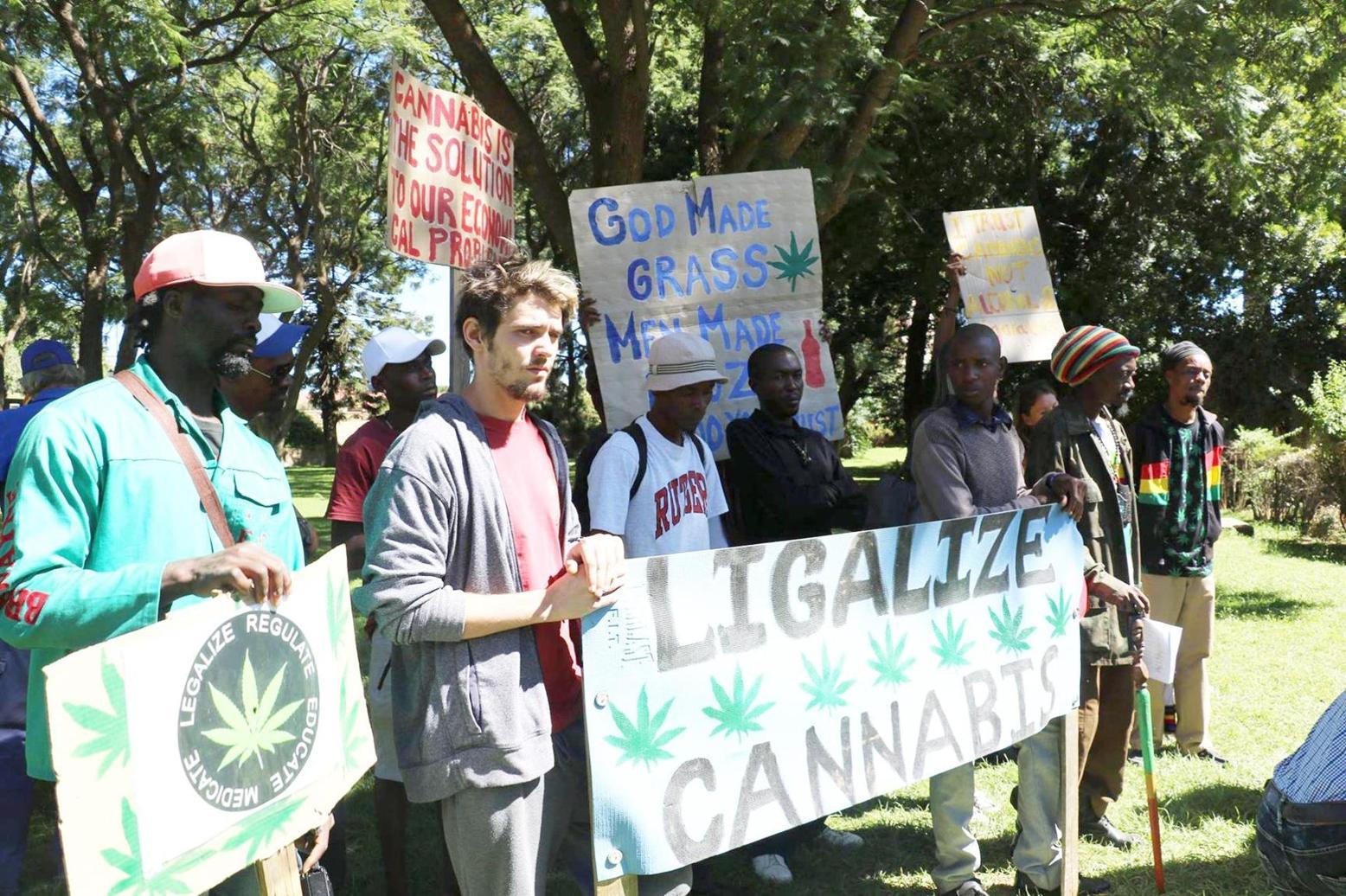Africa-Press – Namibia. Four Namibian cannabis advocacy groups have jointly submitted a legal and human rights-based request for the urgent reform of cannabis laws in the country.
They are Cannabis and Hemp Association of Namibia (CHAN), Ganja Users of Namibia (GUN), Medical Marijuana Association of Namibia (MMAN) and the Rastafari United Front (RUF).
The request was in response to an open call by the Ministry of Justice and Labour Relations for public input on outdated and discriminatory pieces of legislation that are still in force.
The groups argue that cannabis-related laws currently in force are rooted in apartheid-era frameworks and violate both constitutional rights and international legal standards.
Among the laws is the Abuse of Dependence-Producing Substances and Rehabilitation Centres Act 41 of 1971 (RSA), the law on which the prohibition of cannabis use in Namibia is premised.
“These laws continue to criminalise Namibians for a plant that has medicinal, cultural, religious, and economic value. They disproportionately harm poor, black communities while allowing wealthy corporations to profit freely,” the joint statement reads.
The groups further argue that cannabis prohibition violates several key provisions of the Namibian Constitution, including Article 6 (Right to Life).
The activists cited the death of Ellest “Speedy” Plaatje in Keetmanshoop police custody after a suspected epileptic seizure while he was detained for cannabis possession. They argue that the current acts also violate Article 7 (Personal Liberty), Article 8 (Dignity), Article 12 (Fair Trial), Article 10 (Equality Before the Law) and Article 13 (Privacy) of the Constitution.
According to the groups, citizens are jailed for non-violent cannabis offences; the arrest and imprisonment for cannabis use are degrading and often involve cruel treatment.
“Corporations can sell cannabis products legally, while ordinary citizens are criminalised; presumptions of guilt based on possession amounts or property status undermine the presumption of innocence; and the current laws permit warrantless searches and seizures, infringing on personal privacy,” they charged. The submission further notes that Namibia’s ongoing criminalisation of cannabis use and cultivation breaches its obligations under several international human rights treaties, including the Convention on the Elimination of Racial Discrimination.
Injustice
The advocates further argue that the current drug laws perpetuate economic exclusion.
“Ordinary citizens are barred from participating in the hemp and cannabis economy, while corporations sell cannabis-infused products with legal impunity,” the document states.
They also highlighted that Namibia’s prohibition on industrial hemp, a non-psychoactive variant of cannabis, blocks opportunities for rural development and green job creation in farming, manufacturing and construction.
“Banning the cultivation of hemp contradicts the government’s stated economic transformation goals and violates the right to work and benefit from the country’s natural resources,” the groups assert.
Violations
Additionally, RUF places emphasis on the fact that cannabis is a sacred herb used in religious ceremonies. Criminalising its use, therefore, infringes on their right to religious freedom under Article 21 of the Constitution, they say.
The groups also contend that restricting access to medical cannabis violates the
right to health, citing international studies that show cannabis can effectively treat epilepsy, post-traumatic stress disorder, chronic pain and more.
The submission echoes global trends towards decriminalisation and reform. In 2020, the United Nations Commission on Narcotic Drugs reclassified cannabis following World Health Organization (WHO) recommendations. In 2024, UN high commissioner for human rights Volker Türk called the global war on drugs a failure.
The protesting groups urged Namibia to follow South Africa’s example, where the Constitutional Court legalised private use and cultivation, while the country’s parliament is in the process of passing the Cannabis for Private Purposes Act.
Penalties
The staunch cannabis advocates further criticised the harsh and costly enforcement of outdated drug laws.
They cited the recent case of Brian Jaftha, who was sentenced to two years in prison for cannabis worth N$2 000, costing taxpayers more than N$36 000 to keep him behind bars, while his N$160 000 vehicle was seized.
“Meanwhile, many violent crimes, including rape and assault, result in lesser punishments. This is not justice, it’s economic and social sabotage,” the submission reads.
The advocacy coalition has called for the amendment to the law to allow for a moratorium on cannabis-related arrests and prosecutions until the law is amended. They also called for the deletion of cannabis from the schedules of the Medicines and Controlled Substances.
“Our submission is not only legal; it is moral and constitutional. Namibia cannot claim to be a modern democracy while still enforcing apartheid-era cannabis laws,” the statement reads.
For More News And Analysis About Namibia Follow Africa-Press






